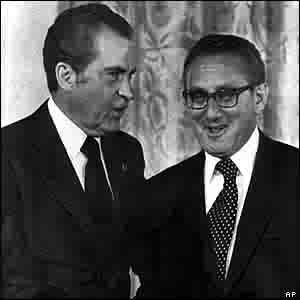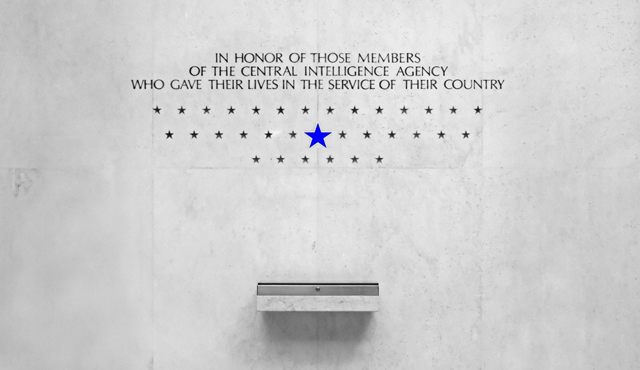| Was the end
of the war in Vietnam delayed?
Historians: Nixon sacrificed American troops in his quest for a second term.
ROANOKE, VA. – Three months before the 1972 presidential election, Richard Nixon and Henry Kissinger met in the Oval Office to discuss when and how to get out of Vietnam. Despite a massive bombing campaign during the spring and summer, the Republican president had concluded that U.S.-backed "South Vietnam probably can never even survive anyway." "We also have to realize, Henry, that winning an election is terribly important," Nixon told his national security adviser. "It's terribly important this year, but can we have a viable foreign policy if a year from now or two years from now, North Vietnam gobbles up South Vietnam? That's the real question." The conversation, recorded by Nixon's taping system, was transcribed by the University of Virginia Miller Center of Public Affairs to be released today, the 30th anniversary of Nixon's resignation. Some historians, including biographer Jeffrey Kimball, consider it evidence that Nixon sacrificed American forces in his quest for a second term, keeping them engaged to ensure that the South Vietnamese government wouldn't collapse before the election. "It became increasingly apparent to them by 1972, if not before, that they couldn't win the war and they'd have to end it," said Kimball. Kissinger, now a foreign-policy consultant, said in an interview with The Associated Press that Kimball and other historians are focusing too much on an informal conversation that he said did not reflect Nixon's policies. "Every once in a while he got discouraged and said, 'Chuck the whole thing,' but that was never his policy," Kissinger said. Historians said the conversation reflected Nixon's "decent interval" exit strategy in Vietnam. By propping up Saigon, the theory goes, the government could survive at least a few years on its own, and Nixon would be able to distance himself from any political fallout when it collapsed. The Aug. 3, 1972, conversation, which was released in December by the National Archives, shows that Nixon worried about how his administration would be viewed if South Vietnam fell. Kissinger, who would share the Nobel Peace Prize the following year with North Vietnam's Le Duc Tho for brokering a peace agreement, advised the president that they could avoid being seen as failures as long as South Vietnam held on for a few years. "If a year or two years from now, North Vietnam gobbles up South Vietnam, we can have a viable foreign policy if it looks as if it's the result of South Vietnamese incompetence," Kissinger said. |

